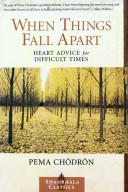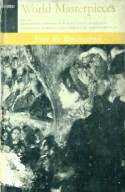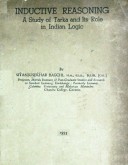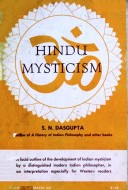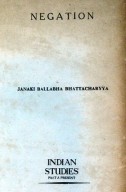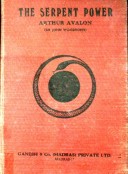Tìm Sách
Sách tiếng Anh-English >> When Things Fall Apart
Thông tin tra cứu
- Tên sách : When Things Fall Apart
- Tác giả : Pema Chodron
- Dịch giả :
- Ngôn ngữ : Anh
- Số trang : 147
- Nhà xuất bản : Shambhala Publication
- Năm xuất bản : 1997
- Phân loại : Sách tiếng Anh-English
- MCB : 1210000008181
- OPAC :
- Tóm tắt :
CONTENTS
Acknowledgments…………………………viii
Introduction…………………………ix
- Intimacy with Fear
- When Things Fall Apart
- This Very Moment Is the Perfect Teacher
- Relax As It Is
- It’s Never Too Late
- Not Causing Harm
- Hopelessness and Death
- Eight Worldly Dharmas
- Six Kinds of Loneliness
- Curious about Existence
- Nonaggression and the Four Maras
- Growing Up
- Widening the Circle of Compassion
- The Love That Will Not Die
- Going against the Grain
- Servants of Peace
- Opinions
- Secret Oral Instructions
- Three Methods for Working with Chaos
- The Trick of Choicelessness
- Reversing the Wheel of Samsara
- The Path Is the Goal
Bibliography
Resources…………………………148
ACKNOWLEDGMENTS
My sincere gratitude to Lynne Van de Bunte, who not only preserved the tapes that make up the talks in the book but also spent many hours finding the following people to transcribe them: my thanks to Heidi Utz; Rex Washburn, Ginny Davies, and Aileen and Bill Fell (who also got all the talks on one computer), and also to Lynne herself, who transcribed the tapes that were so ancient, no one else could figure out what was being said. Finally, a very special thank-you to my friend and editor Emily Hilburn Sell, who took a carton of unedited talks and transformed them into this book. Without her talent, hard work, and loving dedication, I would never have published anything. I feel fortunate that we can continue to work together.
INTRODUCTION
In 1995 I took a sabbatical. For twelve months I essentially did nothing. It was the most spiritually inspiring time of my life. Pretty much all I did was relax. I read and hiked and slept. I cooked and ate, meditated and wrote. I had no schedule, no agenda, and no “shoulds.” A lot got digested during this completely open, uncharted time. For one thing, I began to read slowly through two cardboard boxes of very raw, unedited transcriptions of talks I had given from 1987 to 1994. Unlike the dathun talks that make up The Wisdom of No Escape and the lojong teachings that make up. Start Where You Are, these talks seemed to have no unifying thread. Now and then I would look at a few transcripts. I found them everything from pedantic to delightful. It was both interesting and embarrassing to be faced with such a profusion of my own words. Gradually, as I read more, I began to see that in some way, no matter what subject I had chosen, what country I was in, or what year it was, I had taught endlessly about the same things: the great need for maitri (loving-kindness toward oneself), and developing from that the awakening of a fearlessly compassionate attitude toward our own pain and that of others. It seemed to me that the view behind every single talk was that we could step into uncharted territory and relax with the groundlessness of our situation. The other underlying theme was dissolving the dualistic tension between us and them, this and that, good and bad, by inviting in what we usually avoid. My teacher, Chõgyam Trungpa Rinpoche, described this as “leaning into the sharp points.” It occurred to me that for all those seven years, I’d been simply trying to digest and communicate the helpful and very gutsy instructions that Trungpa Rinpoche gave his students.
As I delved into the boxes, I could see that I still had a long way to go before fully appreciating what I had been taught. I also saw that by putting Rinpoche’s advice into practice as well as I could, and by attempting to share this experience of a student’s path with others, I had found a kind of fundamental happiness and contentment that I’d never known before. It made me laugh to see that, just as I had so often said, making friends with our own demons and their accompanying insecurity leads to a very simple, understated relaxation and joy.
About halfway through the year, my editor, Emily Hilburn Sell, happened to ask me if I had any more talks that might be usable for a third book. I sent her the cardboard boxes. She read through the transcripts and felt inspired to tell Shambhala Publications, “We have another book.”
Over the next six months, Emily sifted and shifted and deleted and edited, and I had the luxury to work further on each chapter to my heart’s content. When I wasn’t resting or looking at the ocean or walking in the hills, I would get totally absorbed by these talks. Rinpoche once gave me the advice “Relax and write.” At the time it didn’t seem like I’d ever do either of these things, but years later, here I was following his instructions.
The result of this collaboration with Emily and my year of doing nothing is this book.
May it encourage you to settle down with your life and take these teachings on honesty, kindness, and bravery to heart. If your life is chaotic and stressful, there’s plenty of advice here for you. If you’re in transition, suffering from loss, or just fundamentally restless, these teachings are tailor made. The main point is that we all need to be reminded and encouraged to relax with whatever arises and bring whatever we encounter to the path.
In putting these instructions into practice, we join a long lineage of teachers and students who have made the buddha dharma relevant to the ups and downs of their ordinary lives. Just as they made friends with their egos and discovered wisdom mind, so can we.
I thank the Vidyadhara, the Venerable Chôgyam Trungpa Rinpoche, for totally committing his life to the dharma and for being so eager to transmit its essence to the people of the West. May the inspiration I received from him be contagious. May we, like him, lead the life of a bodhisattva, and may we not forget his proclamation that “Chaos should be regarded as extremely good news.”
PEMA CHODRON
Gampo Abbey
Pleasant Bay, Nova Scotia, 1996
 Facebook
Facebook
 Google
Google
 Google+
Google+
